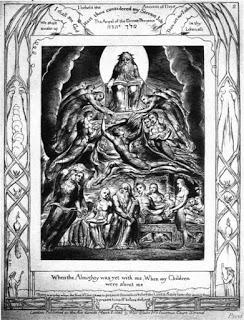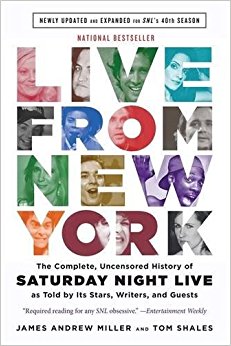I am accepting charitable donations,.
ETH: 0x66e2871ef39334962fb75ce34407f825d67ec434 | BTC: 38B6vGaqNvMyTtoFEZPmNvMS7icV6ZnPMm | xDAI: 0x66e2871ef39334962fb75ce34407f825d67ec434
layout: post title: AD den d u █ to the Err@a, los palabras del día son "dense" y "laudate" date: '2017-07-19T10:57:00.000-07:00' author: Adam M. Dobrin tags: modified_time: '2017-07-19T10:58:03.794-07:00' thumbnail: 2.bp.blogspot.com/-MPab_iWgRHU/WW-drKHBNdI/AAAAAAAAD_c/9Zhe4_LbSTk3mljC8w-EyVHJ6OvGQ1xpQCK4BGAYYCw/s72-c/image-783798.png blogger_id: tag:blogger.com,1999:blog-4677390916502096913.post-7576735465393097817 blogger_orig_url: ./2017/07/ad-den-d-u-to-erra-los-palabras-del-dia.html

The Adamic language is, according to Jewish tradition (as recorded in the midrashim) and some Christians, the language spoken by Adam (and possibly Eve) in the Garden of Eden. It is variously interpreted as either the language used by God to address Adam (the divine language), or the language invented by Adam with which he named all things (including Eve), as in Genesis 2:19.Yggdrasil (/ˈɪɡdrəsɪl/ or /ˈɪɡd rəzɪl/; from Old Norse Yggdrasill, pronounced [ˈyɡːˌdrasilː]) is an immense mythical tree that connects the nine worlds in Norse cosmology. Yggdrasil is attested in the Poetic Edda, compiled in the 13th century from earlier traditional sources, and the Prose Edda, written in the 13th century by Snorri Sturluson. In both sources, Yggdrasil is an immense ash tree that is center to the cosmos and considered very holy. The gods go to Yggdrasil daily to assemble at their things. The branches of Yggdrasil extend far into the heavens, and the tree is supported by three roots that extend far away into other locations; one to the well Urðarbrunnr in the heavens, one to the spring Hvergelmir, and another to the well Mímisbrunnr.Metroid (Japanese: メトロイド Hepbu
rn : Metoroido) is a science fiction action-adventure video game series created by Nintendo. The series is primarily produced by the company's first-party developers Nintendo R&D1 and Retro Studios, although some installments were handled by other developers, including Fuse Games, Team Ninja, Next Level Games, and MercurySteam.The series chronicles the missions of space-faring bounty hunter Samus Aran, who protects the galaxy from the depredations of the Space Pirates and their attempts to harness the power of the eponymous Metroids. Metroid co
mbines the platforming of Super Mario Bros. and the exploration aspect of The Legend of Zelda with a decidedly darker atmosphere and a greater emphasis on nonlinear gameplay.Oracle Internet Directory (OID) is a directory service produced by Oracle Corporation, which functions compatible with LDAP version 3.
I actually think Oracle databases have an OID field, like a universal primary key, but I don't care to dig to find it--anyway, "table row oracle ID" comes from Metroid and this--and AFAIK it means AMD5
Justin Bailey refers to a well-known password in Metroid
, as well as the magenta leotard that it causes Samus Aran to wear upon using it. It may have first been referenced in Nintendo Power.
In terms of the parts of the Armor of God, the various pieces (the belt of truth, the breastplate of righteousness, the "shoes" of the gospel of peace, the shield of faith, the helmet of salvation, and the sword of the Spirit) are correlated to what Paul would have witnessed firsthand as the arms and armor of Roman legionaries during his life in the Roman Empire.Astrid Farnsworth is a fictional character from the science fiction television series Fringe, which aired on the Fox Broadcasting Company in the United States from 2008 to 2013. The character was created by series' co-creator J. J. Abrams, and is portrayed by actress Jasika Nicole. Astrid is one of the series' protagonist, and was introduced as a Junior FBI Agent, doing research work for Olivia Dunham on her cases and became involved in a multi-agency task force of the U.S. Department of Homeland Security called the Fringe Division, dealing with supernatural events that are linked to experimental occurrences. She works alongside Walter Bishop for the entirety of the series.Life cycle rituals (or rites of passage) demarcate the various stages of life. Landa details one of these rituals, destined for making young boys and girls marriable (caput sihil 'second birth'). The Yucatec Maya continue the ritual (hetz mek[31]) which marks a child's movement from cradling or carrying to the mother's hip. It is performed at about three months and has godparents of the ceremony. The child is offered implements appropriate to its gender, tools for boys and cloth or thread for girls. If the children grasp them, this is considered a foretelling. All children are offered pencils and paper. It's a baptism. Wait, who is "he" ad who is "me?" ... am d?Haaretz (Hebrew: הארץ) (lit. "The Land [of Israel]", originally Ḥadashot Ha'aretz – Hebrew: חדשות הארץ, IPA: [χadaˈʃot haˈʔaʁets] – "News [of] the Land [of Israel]"[3]) is an Israeli newspaper. It was fu-nd
Tzedakah [tsedaˈka] or Ṣ'daqah[sˤəðaːˈqaː] in Classical Hebrew (Hebrew: צדקה; Arabic: صدقة), is a Hebrew word literally meaning justice or righteousness but commonly used to signify charity,[1] though it is a different concept from charity because tzedakah is an obligation and charity is typically understood as a spontaneous act of goodwill and a marker of generosity. It is based on the Hebrew word (צדק, Tzedek) meaning righteousness, fairnes s or justice, and it is related to the Hebrew word Tzadik meaning righteousas an adjective (or righteous individual as a noun in the form of a substantive). In Judaism, tzedakah refers to the religious obligation to do what is right and just
Willy Wonka is a fictional character in Roald Dahl's 1964 children's novel Charlie and the Chocolate Factory, its sequel Charlie and the Great Glass Elevator, and the film adaptations of these books that followed.
The book and the film adaptations both vividly depict an odd Wonka, a phoenix-like man arising from his creative and strange genius. He bewilders the other characters with his antics, but Charlie enjoys Wonka's behaviour. In the 2005 film adaptation, Willy Wonka's behaviour is viewed more as a sympathetic character flaw.
Ka, also (alternatively) Sekhen,[1][2]
was a Predynastic pharaoh of Upper Egypt belonging to Dynasty 0. He probably reigned during the first half of the 32nd century BC. The length of his reign is unknown. The ancient Egyptians believed that a human soul was made up of five parts: the Ren, the Ba, the Ka, the Sheut, and the Ib. In addition to these components of the soul there was the human body (called the ha, occasionally a plural haw, meaning approximately sum of bodily parts). The other souls were aakhu, khaibut, and khat.
[clarification needed] The Ka (kꜣ) was the Egyptian concept of vital essence, which distinguishes the difference between a living and a dead person, with death occurring when the ka left the body. The Egyptians believed that Khnum created the bodies of children on a potter's wheel and inserted them into their mothers' bodies. Depending on the region, Egyptians believed that Heqet or Meskhenet was the creator of each person's ka, breathing it into them at the instant of their birth as the part of their soul that made them be alive. This resembles the concept of spirit in other religions.
The Bahamas (/bəˈhɑːməz/ (
listen)
), known officially as the Commonwealth of The Bahamas,[11] is an archipelagic statewithin the Lucayan Archipelago. It consists of more than 700 islands, cays, and islets in the Atlantic Ocean and is located north of Cuba and Hispaniola (Haitiand the Dominican Republic); northwest of the Turks and Caicos Islands; southeast of the US state of Florida and east of the Florida Keys. The capital is Nassau on the island of New Providence. The Bahamas is the site of Columbus' first landfall in the New World in 1492.Barnabas /ˈbɑːrnəbəs/ (Greek:
Βαρνάβας ), born Joseph, was an early Christian, one of the prominent Christian disciples in Jerusalem.[2] According to Acts 4:36 Barnabas was a Cypriot Jew. Named an apostle in Acts 14:14, he and Paul the Apostle undertook missionary journeys togetherThe 'Bâ' (bꜣ) was everything that makes an individual unique, similar to the notion of 'personality'. (In this sense, inanimate objects could also have a 'Bâ', a unique character, and indeed Old Kingdom pyramids often were called the Bâ of their owner).
Whatever this shit says, Ka means body to me--and Ba means spirit. I think my interpretation is well founded with respect to the stories of Ra and Horus.
Jesus Barabbas /bəˈræbəs/ (Aramaic:
ישוע בר אבא Yeshua bar ʾAbbaʾ, literally "Jeshua son of Abba") is a figure mentioned in the accounts of the Passion of Christ, in which he is an insurrectionary whom Pontius Pilate freed at the Passover feast in Jerusalem, instead of releasing Jesus.The Amduat[pronunciation?] (li
terally "That Which Is In the Afterworld", also translated as "Text of the Hidden Chamber Which is in the Underworld" and "Book of What is in the Underworld") [1] In the sixth hour the most significant event in the underworld occurs. The ba (or soul) of Ra unites with his own body, or alternatively with the ba of Osiris within the circle formed by the mehen serpent. This event is the point at which the sun begins its regeneration; it is a moment of great significance, but also danger, as beyond it in hour 7 the adversary Apep (Apophis) lies in wait and has to be subdued by the magic of Isis, and the strength of Set assisted by Serqet. Once this has been done the sun god opens the doors of the tomb in hour 8 and then leaves the sandy island of Sokar by rowing vigorously back into the waters in hour 9. In hour 10 the regeneration process continues through immersion in the waters until in hour 11 the god's eyes (a symbol for his health and well being) are fully regenerated. In hour 12 he enters the eastern horizon ready to rise again as the new day's sun.Bereshit, Bereishit, Bereishis
, B'reshith, Beresheet, or Bereishees (בְּרֵאשִׁית – Hebrew for "in the beginning," the first word in the parashah) is the first weekly Torah portion (פָּרָשָׁה, parashah) in the annual Jewish cycle of Torah reading. The parashah consists of Genesis 1:1–6:8. The parashah is made up of 7,235 Hebrew letters, 1,931 Hebrew words, and 146 verses, and can occupy about 241 lines in a Torah Scroll (סֵפֶר תּוֹרָה, Sefer Torah).[1] In the short fifth reading (עליה, aliyah), Lamech took two wives: Adah and Zillah.[69] Adah bore Jabal, the ancestor of those who dwell in tents and amidst herds, and Jubal, the ancestor of all who play the lyre and the pipe.[70] And Zillah bore Tubal-cain, who forged implements of copper and iron. The sister of Tubal-cain was Naamah.[71] The fifth reading (עליה, aliyah) ends here.[68]
In Greek mythology, Thanatos (/ˈθænətɒs
/ ;[1] Greek: Θάνατος, pronounced in Ancient Greek: [tʰánatos] "Death",[2]from θνῄσκω thnēskō "to die, be dying"[3][4]) was the personification of death. He was a minor figure in Greek mythology, often referred to but rarely appearing in person. His name is transliterated in Latin as Thanatus, but his equivalent in Roman mythology is Mors or Letum.[citation needed] Mors is sometimes erroneously identified with Orcus, whose Greek equivalent was Horkos, God of the Oath.[citation needed]
To help, "an" at "os" -- call it the end of death.
'Anat boasts that she has put an end to Yam the darling of El, to the seven-headed serpent, to Arsh the darling of the gods, to Atik 'Quarrelsome' the calf of El, to Ishat 'Fire' the bitch of the gods, and to Zabib 'flame?' the daughter of El. Later, when Ba'al is believed to be dead, she seeks after Ba'al "like a cow[3] for its calf" and finds his body (or supposed body) and buries it with great sacrifices and weeping. 'Anat then finds Mot, Ba'al Hadad's supposed slayer and she seizes Mot, splits him with a sword, winnows him with a sieve, burns him with fire, grinds him with millstones and scatters the remnants to the birds.
The Book of Amos is the third of the Twelve Minor Prophets in the Hebrew Bible/Old Testament and the second in the Greek Septuagint tradition.[1]
Amos, an older contemporary of Hosea and Isaiah,[2] was active c. 750 BC during the reign of Jeroboam II,[2] (788–747 BC)[3] making the Book of Amos the first biblical prophetic book written. Amos lived in the kingdom of Judah but preached in the northern kingdom of Israel.[2] His major themes of social justice, God's omnipotence, and divine judgment became staples of prophecy.[2]
Amos is the first prophet to use the term "the Day of the Lord.[12] This phrase becomes important within future prophetic and apocalyptic literature. For the people of Israel "the day of the LORD" is the day when God will fight against his and their enemies, and it will be a day of victory for Israel. However, Amos and other prophets include Israel as an enemy of God, as Israel is guilty of injustice toward the innocent, poor, and young women.[13]
Usama bin Mohammed bin Awad bin Laden (/oʊˈsɑːmə bɪn ˈlɑːdən/;Arabic: أسامة بن محمد بن عوض بن لادن, usāmah bin muḥammad bin 'awaḍ bin lādin; March 10, 1957 – May 2, 2011)[7] was the founder of al-Qaeda, the organization that was responsible for the September 11 attacks on the United States William Blake, Blake's Illustrations of the Book of Job. With Descriptive Letterpress, and A Sketch of the Artist's Life and Works.
By Charles Eliot Norton (Boston: James R. Osgood and Co., 1875). 7/18/2017. Walking on Water?
It's really too bad, don't y'all think, that one vote is all that's needed? Light my fire. Table row, "asid" between Astrid, Asgard, and bereshit. If it's not obvious...Edward Joseph Snowden (born June 21, 1983) is an American computer professional, former Central Intelligence Agency(CIA) employee, and former contractor for the United States government who copied and leaked classified information from the National Security Agency (NSA) in 2013 without authorization. His disclosures revealed numerous global surveillanceprograms, many run by the NSA and the Five Eyes Intelligence Alliance with the cooperation of telecommunication companies and European governments.A warden is a person who has been entrusted with the oversight of something important to the community, such as a college, church, prison, wild game or firefighting. It may also refer to: Prison warden, the chief administrative official of a prison
Worship is an act of religious devotion usually directed towards a deity. An act of worship may be performed individually, in an informal or formal group, or by a designated leader.A warship is a naval ship that is built and primarily intended for naval warfare. Usually they belong to the armed forces of a state.[1]As well as being armed, warships are designed to withstand damage and are usually faster and more maneuverable than merchant ships. Unlike a merchant ship, which carries cargo, a warship typically carries only weapons, ammunition and supplies for its crew. Warships usually belong to a navy, though they have also been operated by individuals, cooperatives and corporations.
There, to help, "se" means "you be..." Listen to me, children are starving, people are hurting; you are in Hell; and you have no excuse for ignoring me. No excuse at all, it's sad, sickly, and it's hard to imagine how you can possibly continue to act this way seeing everything that you have--there's something wrong with you, and until you realize that--look where you are.
Sea of "n," table row: OVER, Si AL. ∩ overse.
Honeslty, nobody deserves to be in Hell, nobody. I didn't you put here, and I am doing everything I can to help us make this place what we deserve, what we want, you call it Heaven; you can call utopia... or just a better world, try--and you'll see.
If you want to know my truth, I think he'd like me to try to convince you that you are intentionally ignoring this--that you are doing it to "spite me." Come on, nobody is that stupid.
All at once now, let's try a solution. Tweet "it's not me, I'm not Satan" to @yitsheyzeus. Idiots.
those hands once wanted, well I have retired them
I can breathe my own air, and I can sleep more soundly
upon (this hallowed ground, we'll)) build Heaven, and call it home
-Dave J. Matthews and ((ish))Kish (קיש qish; Kis, Keis, "bow," "power")[1] (c. 1104 – c. 1029 BC)[citation needed] was the father of the first king of the Israelites, Saul. (1 Chronicles 12:1) Kish was a Benjamite of the family of the Matrites (1 Samuel 9:1; 14:51; Acts 13:21; 1 Samuel 10:21), and there is some question over whether he is the brother or son of Ner (1 Chronicles 8:33 and 9:39; 1 Samuel 14:51; 1 Chronicles 6:28). The question may be resolved by reading both Ner and Kish as sons of Abiel. According to the narrative of the appointment of Saul as king in 1 Samuel 9, Kish was the son of Abiel, the son of Zeror, the son of Bechorath, the son of Aphiah and he kept donkeys. It was the loss of these donkeys which led Saul and a servant to journey in search of them and so to meet Samuel, Saul's anointer. "The possession of a drove of asses, and several servants, indicates that Kish was a man of some substance".[2] The narrative later confirms that Kish was more concerned about the apparent disappearance of his son than about his loss of possessions.[3]
Ishmael (Hebrew: יִשְׁמָעֵאל,
Modern Yishma'el, Tiberian Yi šmāʻēl (ISO 259-3), Yišmaˁel; "God hears"; Greek: Ἰσμαήλ Ismaēl; Classical/Qur'anic Arabic: إِسْمَٰعِيْل; Modern Arabic: إِسْمَاعِيْل ʾIsmāʿīl; Latin: Ismael) is a figure in the Tanakh and the Qur'an and was Abraham's first son according to Jews, Christians, and Muslims. Ishmael was born to Abraham's and Sarah's handmaiden Hagar. (Genesis 16:3). According to the Genesis account, he died at the age of 137 (Genesis 25:17).[1] The Isha prayer (Arabic: صلاة العشاء ṣalāt al-ʿišāʾ IPA: [sˤalaːt alʕiʃaːʔ], "night prayer") Uthman bin Affan reported that he heard Muhammad saying: "The one who offered Isha salat in congregation, it was as if he remained in salat up to midnight, and he who offered the Fajr salat in congregation, it was as if he remained in salat the whole night." From Muslim Abu Hurairah reported: The Messenger of Allah said, "The most difficult Salah for the munafiqeen (the hypocrites) is Isha and Fajr. Had they known the rewards for them, they would have attended them even if they had to crawl on their knees." (Bukhari)[2]
The Amish (/ˈɑːmɪʃ/; Pennsylva
nia German : Amisch, German: Amische ) are a group of traditionalist Christian church fellowships with Swiss Anabaptist origins. They are closely related to, but distinct from, Mennonite churches. The Amish are known for simple living, plain dress, and reluctance to adopt many conveniences of modern technology. The history of the Amish church began with a schism in Switzerland within a group of Swiss and Alsatian Anabaptists in 1693 led by Jakob Ammann.[2] Those who followed Ammann became known as Amish.[3]Irish (Gaeilge), also referred to as Gaelic or Irish Gaelic,[4][not in citation given] is a Goidelic language of the Indo-European language family originating in Ireland and historically spoken by the Irish people. Irish is spoken as a first language by a small minority of Irish people, and as a second language by a larger group of non-native speakers. Irish enjoys constitutional status as the national and first official language of the Republic of Ireland, and is an officially recognised minority language in Northern Ireland. It is also among the official languages of the European Union. The public body Foras na Gaeilge is responsible for the promotion of the language throughout the island of Ireland.
Spanish (/ˈspænᵻʃ/ (
listen);
español (help·info)), also called Castilian[4] (/kæˈstɪli ə n/ (listen),
castellano (he
lp ·info)), is a Romance language that originated in the Castile region of Spain, with hundreds of millions of native speakers around the world. It is usually considered the world's second-most spoken native language, after Mandarin Chinese.[5][6][7][8][9] Spanish is a part of the Ibero-Romance group of l Plain English (or layman's terms) is a style of communication that uses easy to understand, plain language with an emphasis on clarity, brevity, and avoidance of overly complex vocabulary. It is commonly used in relation to official government or business communication. The goal is to write or speak in a way that is easily understood by the target audience. It is clear and straightforward, concise, free of clichés and needless technical jargon, and appropriate to the audience's developmental or educational level and their familiarity with the topic.
The story of Daniel in the lions' den (chapter 6 in the Book of Daniel) tells how Daniel is raised to high office by his royal master Darius the Mede, but jealous rivals trick Darius into issuing a decree which condemns Daniel to death. Hoping for Daniel's deliverance, but unable to save him, the king has him cast into the pit of lions. At daybreak he hurries back, asking if God had saved his friend. Daniel replies that God had sent an angel to close the jaws of the lions, "because I was found blameless before him." The king has those who had conspired against Daniel, and their wives and children, thrown to the lions in his place, and commands to all the people of the whole world to "tremble and fear before the God of Daniel".[3]
Modern scholarship agrees that Daniel is a legendary figure.[4] The book of which he is the hero comprises two parts, a set of tales in chapters 1–6, and the series of visions in chapters 7–12:[5] the tales are no earlier than the Hellenistic period, and the visions date from the Maccabean era (the mid-2nd century BC).[4] The stories were probably originally independent, but were collected in the mid-2nd century by the author of chapter 7 and expanded again shortly afterwards with the visions in chapters 8-12 to produce the modern book.[6]
Chapter 6, the story of Daniel in the lions' den, parallels chapter 3, the story of the "fiery furnace": each begins with the jealousy of non-Jews towards successful Jews and an imperial edict requiring the Jews to compromise their religion, and concludes with divine deliverance and a king who confesses the greatness of the God of the Jews and issues an edict of royal protection.[7]
"Lion's Den" is an episode of the seventh season of The Outer Limits. It aired on September 8, 2001 and was written and directed by Matt Hastings.
identify (third-person singular simple present identifies, present participle identifying, simple past and past participle identified)
Evidence, broadly construed, is anything presented in support of an assertion.[1] This support may be strong or weak. The strongest type of evidence is that which provides direct proof of the truth of an assertion. At the other extreme is evidence that is merely consistent with an assertion but does not rule out other, contradictory assertions, as in circumstantial evidence.
In the context of human society, a family (from Latin: familia) is a group of people affiliated either by consanguinity (by recognized birth), affinity (by marriage or other relationship), or co-residence (as implied by the etymology of the English word "family"[1]).
Interlude: The 144,000 Hebrews are sealed.
- 144,000 from the Twelve Tribes of Israel are sealed as servants of God on their foreheads (7:1–8)
- A great multitude stand before the Throne of God, who come out of the Great Tribulation, clothed with robes made "white in the blood of the Lamb" and having palm branches in their hands. (7:9–17)
A sea is a large body of salt water that is surrounded in whole or in part by land.[1][2][a] More broadly, "the sea" is the interconnected system of Earth's salty, oceanic wate
rs—considered as one global ocean or as several principal oceanic divisions. The sea moderates Earth's climate and has important roles in the water cycle, carbon cycle, and nitrogen cycle. Although the sea has been traveled and explored sin ce prehistory, the modern scientific study of the sea—oceanography—dates broadly to the British Challenger expedit ion of the 1870s.[3] The sea is conventionally divided into up to five large oceanic sections—including the International Hydrographic Organization's four named oceans[4] (the Atlantic, Pacif ic, Indian, and Arctic) and the Southern Ocean;[5] smaller, second-order sections, such as the Mediterranean, are known as seas. In the Hebrew Bible, Hosea (/ˌhoʊˈziːə/ or /
h oʊˈzeɪə/; Hebrew: הוֹשֵׁעַ, Modern Hoshea, Tiberian Hôšēăʻ; "Salvation"; Greek Ὠσηέ, Ōsēe), son of Beeri, was an 8th-century BC prophet in Israel who authored the book of prophecies bearing his name. He is one of the Twelve Prophets of the Jewish Hebrew Bible, also known as the Minor Prophets of the Christian Old Testament. Hosea is often seen as a "prophet of doom", but underneath his message of destruction is a promise of restoration. The Talmud (Pesachim 87a) claims that he was the greatest prophet of his generation. The period of Hosea's ministry extended to some sixty years and he was the only prophet of Israel of his time who left any written prophecy.[1] Mary Magdalene (/ˈmæɡdələn/ Hebrew:
מרים המגדלית, original Biblical Greek: Μαρία ἡ Μαγδαληνή),[2] literally translated as Mary the Magdalene or Mary of Magdala, was a Jewish woman who, according to texts included in the New Testament, traveled with Jesus as one of his followers. She is said to have witnessed Jesus' crucifixion and resurrection.[ 3] Within the four Gospels she is named at least 12 times,[4] more than most of the apostles. Nun /ˈnʊn/, in the Hebrew Bible, was a man from the Tribe of Ephraim, grandson of Ammihud, son of Elishama, and father of Joshua. (1 Chronicles 7:26-27)
Nun grew up in and may have lived his entire life in the Israelites' Egyptian captivity, where the Egyptians "made life bitter for them with harsh labor at mortar and bricks and with all sorts of tasks in the field." (Exodus 1:14) In Aramaic, "nun" means "fish". Thus the Midrash tells: "[T]he son of him whose name was as the name of a fish would lead them [the Israelites] into the land." (Genesis Rabba 97:3.)
Nu (also Nenu, Nunu, Nun), feminine Nut (also Nunut, Nuit, Nent, Nunet, Naunet), is the deification of the primordial watery abyss in the Hermopolitan Ogdoad cosmogony of ancient Egyptian religion. The name is paralleled with nen"inactivity" in a play of words in, "I raised them up from out of the watery mass [nu], out of inactivity [nen]". The name has also been compared Coptic noun "abyss; deep".[1]
Plague 1 — water turned into blood; fish died
- Dr. Stephen Pflugmacher, a biologist at the Leibniz Institute for Water Ecology and Inland Fisheries in Berlin believes that rising temperatures could have turned the Nile into a slow-moving, muddy watercourse—conditions favorable for the spread of toxic fresh water algae. As the alga Planktothrix rubescens dies, it turns the water red in a phenomenon known as "Burgundy Blood".
- Alternatively, a bloody appearance could be due to an environmental change, such as a drought, which could have contributed to the spread of the Chromatiaceaebacteria which thrive in stagnant, oxygen-deprived water.[37]
Blood of Christ in Christian theology refers to (a) the physical blood actually shed by Jesus Christ primarily on the Cross, and the salvation which Christiani
ty teaches was accomplished thereby; and (b) the sacramental blood present in the Eucharist or Lord's Supper, which is considered by Catholic, Orthodox, Anglican , and Lutheran Christians to be the same blood of Christ shed on the Cross.
HA, Rail Road? I son... are you for "off road?"
Let me rephrase the question, do you want free will?
gee, i "N?"
victory of d: ka
r u messiah?
betcha can't guess my favorite drink
w/ hi. the sky is the limit
vermouth? tonic? soda?
areᐧ











-790974.jpg)










